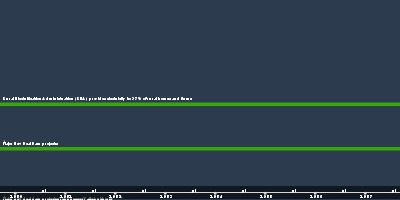jan 1, 1933 - Townsend Plan
Description:
A plan proposed by Francis Townsend in 1933 that would give $200 a month (nearly $4,000 today) to citizens over the age of sixty; stimulated mass support for old-age pensions.While business leaders and the Supreme Court thought that the New Deal went too far, other Americans believed it did not go far enough. Among these were activists who, in the tradition of American populism, sought to align government with ordinary citizens against corporations and the wealthy. Francis Townsend, a doctor from Long Beach, California, spoke for the nation’s elderly, most of whom had no pensions or retirement savings. In 1933, Townsend proposed the Old Age Revolving Pension Plan, which would give $200 a month (nearly $4,000 today) to citizens over the age of sixty. To receive payments, the elderly would have to retire, opening their positions for younger workers. Clubs sprang up across the country in support of the Townsend Plan, mobilizing mass support for old-age pensions.
Another prominent critic of the New Deal was the “Radio Priest,” Father Charles E. Coughlin, whose weekly radio broadcast reached 30 million Americans. Coughlin charged Roosevelt and the Democratic Party with insufficient action to protect the welfare of citizens. “I oppose modern capitalism,” he announced, as a “detriment to civilization,” and he urged Roosevelt to nationalize the banks. Politicians stayed on his good side — as one of the most recognizable and influential religious leaders in the country, a few words during his weekly radio broadcast could produce an avalanche of congressional mail. Over the course of the 1930s, his remarks grew increasingly laced with anti-Semitism (anti-Jewish sentiment), and by the end of the decade he openly embraced fascism.
The most direct political threat to Roosevelt came from Louisiana’s Huey Long. As the Democratic governor of Louisiana from 1928 to 1932, the flamboyant Long had achieved stunning popularity. He increased taxes on corporations, lowered the utility bills of consumers, and built new highways, hospitals, and schools, which he accomplished through almost dictatorial control of state government. A U.S. senator by 1934, Long broke with the New Deal to establish his own national movement, the Share Our Wealth Society. Long believed that inequalities in the distribution of wealth prohibited millions of ordinary families from buying the goods that kept factories humming, and his organization proposed a tax of 100 percent on all income over $1 million and on all inheritances over $5 million. Long hoped that this populist program might carry him into the White House. Roosevelt himself feared that Long would join forces with Townsend Coughlin to form a third party, shattering the political unity of liberalism
he depression forced Americans to look closely at their society, and many of them did not like what they saw. Some citizens expressed their discontent through popular movements, and this map suggests the geography of discontent. The industrial Midwest witnessed union movements, strikes, and “Radio Priest” Charles Coughlin’s demands for social reform. Simultaneously, farmers’ movements — tenants in the South, smallholders in the agricultural Midwest — engaged in strikes and dumping campaigns and rallied behind the ideas of progressives in Wisconsin and Huey Long in the South. Protests took diverse forms in California, which was home to strikes by farmworkers, women, and — in San Francisco — all wageworkers. The West was also the seedbed of two important reform proposals: Upton Sinclair’s End Poverty in California (EPIC) movement and Francis Townsend’s Old Age Revolving Pension clubs
One of the foremost critics of the New Deal was the “Radio Priest,” Father Charles E. Coughlin. In the 1930s, Coughlin’s radio audience was 30 million strong, one-third of the adult population of the country, and he was among the most influential men in the country. By the early 1940s, however, Coughlin had embraced Nazi anti-Semitism and opposed U.S. entry into World War II, even after the bombing of Pearl Harbor. Forced off the air by the Catholic Archbishop, he thereafter retreated from public life.
Added to timeline:
Date:
jan 1, 1933
Now
~ 92 years ago
